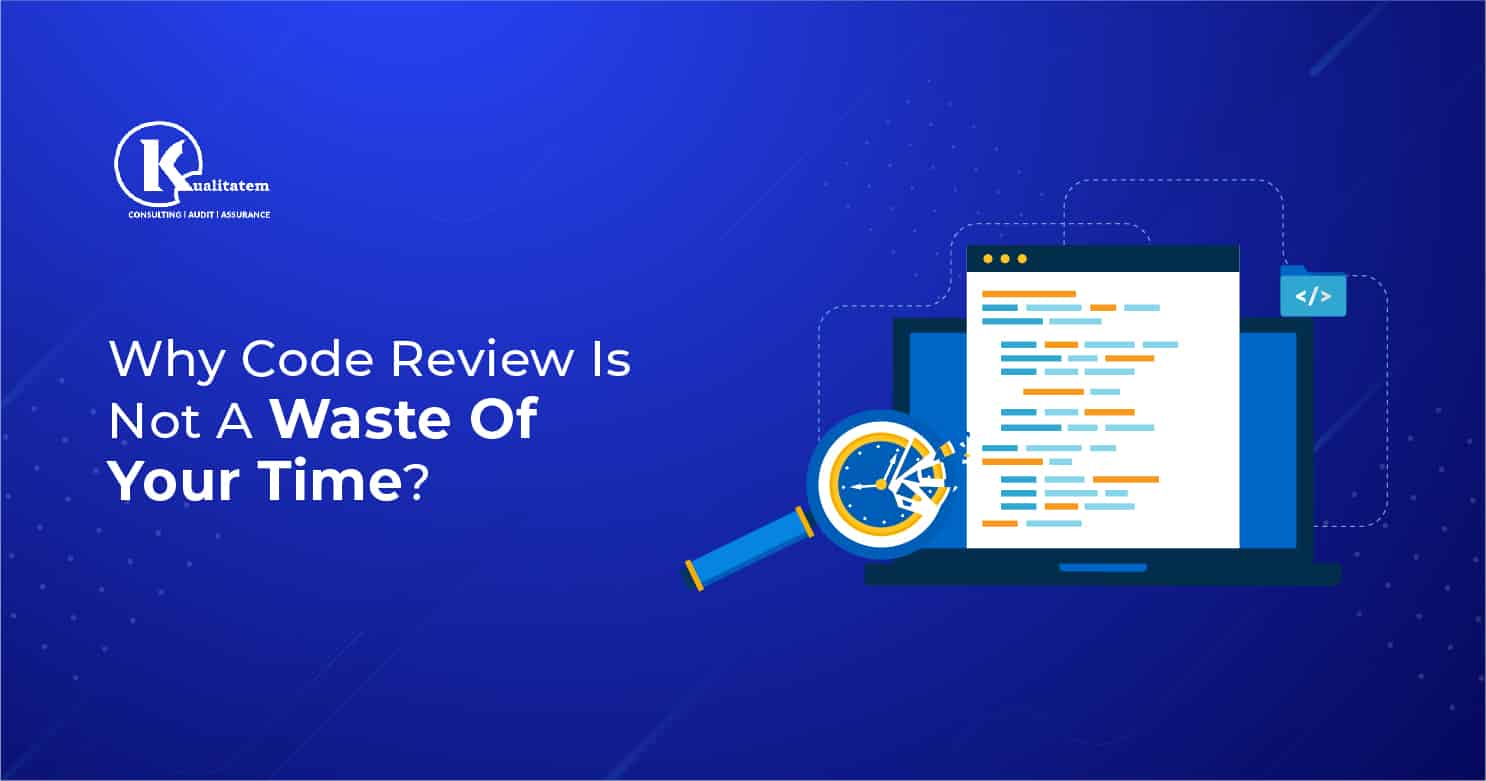Why Code Review Is Not A Waste Of Your Time?

- February 11, 2021
- Hassan Shafiq
All of us acknowledge that it’s costly to do a code review. Especially when everybody is in a crazy hurry to get the software project done and hand it over to the software testing department, it takes a lot of time. It demands that those who are not interested in a specific chunk of code abandon what they do and pay attention to the needs of someone else i.e. perform a code review.
To overcome this problem, many companies outsource code review services, while others try to find ways to make the code review process less time-consuming.
In this article, we’ll dive into some of the reasons why you should pay super attention to code reviews and not see them as something you can ignore.
But first, let’s define what a code review actually is?
Code Review: Definition
Whenever a software developer is done working on a particular problem in a code or software task, another developer reviews the code and checks the following things:
- Are there any logic flaws in the code that are obvious?
- Looking at the guidelines, are these cases fully enforced?
- For the current code, are the new automatic testing sufficient? To account for improvements in the algorithm, do current automatic tests need to be rewritten?
- Will the current code agree with established standards on style?
These guidelines are followed to the core when you outsource your code review services, as the developers in that organization are only focused on code reviewing.
During all development stages, code review takes place, apart from tiny projects such as demos and tests that are intended to be published rapidly and hopefully thrown away. Even as someone is struggling to reach a deadline during the final stages of production, code analysis dramatically decreases the number of regression errors and assures that business coding standards are not abandoned. Using best code review practices, the procedure will significantly reduce the more costly QA defects that are uncovered just before delivery.
The Many Benefits Of Reviewing Code
Does code review take time? Yes. However, it comes with a boatload of benefits. So much that they overrule the time that code review takes. Here are some of them.
Consistency & Culture
Code evaluations provide enormous opportunities with the aim of ‘best practices’ in mind. Code reviews offer an incentive for both the codebase and the developers to build a feeling of continuity and reliability, using the team’s knowledge and skill as a whole. Independent coders develop their technical abilities and experience by supporting the business and the company with their experience and expertise. This gives the company a significant return on its investment: satisfied engineers, as well as running code with competency and quality consistently increasing.
Reviews in code help generate a small shift in what is evaluated and then managed-and that will make a big impact in enhancing software consistency by conducting a code review well. Developers lament easily being measured on the incorrect criteria. You have to adjust the rules to make it easier to prioritize consistency and productive production over having benchmarks that are just process standards rather than a milestone of value delivered.
Making The Bug-Finding Process Cost & Time Effective
It is well known that the faster an error is detected, the easier it is to patch it. It is more than double as costly to correct a bug in QA as to discover it in production. Much as we have difficulty seeing “obvious” flaws in our writing, developers also make clear mistakes that are immediately and readily spotted by external scrutiny.
A code reviewer, particularly those that are famously hard to find after-the-fact, would look for popular bugs. These include adequate thread scheduling, accurate and full treatment of error situations, correct accounting for reference counting and other possible resource leakage, protection concerns, and ensuring that all code routes, error cases, and limit cases are protected by unit tests.
Code reviews give time off
No one wants to be the only point of communication on a piece of code. Similarly, nobody wants to plunge into a crucial piece of code that they didn’t write, particularly during a crisis in production. Code reviews share information around the company so that the reins can be picked up and proceeded to guide the ship by every team member.
But here’s the point: the crucial route without anyone developer often ensures that team members will take time off if required. Code analysis is an excellent way to find independence if you find yourself linked to a desk on the version control system. Freedom to take the holiday that you need, or freedom to spend some time focusing on a certain product area – all is possible through a code review.
Learning and communicating
There are a set of unwritten guidelines and implicit understandings for any project. It is important to communicate this “institutional knowledge” to all new entrants on a project. It is difficult (and maybe not even cost-effective) to write this detail down by definition or to express it all in one sitting. In the first months of the project, the inductee must collect this knowledge, which is typically collected by seasoned developers when they do anything wrong.
Code analysis will make it possible for internal information to be shared if it applies to the code written by the newbie. Experienced members of the staff have the ability to share their expertise and advice.
Conclusion
Code review is super important as it makes sure that the efficiency of the code and therefore the software application is maintained.
However, if the best code review practices aren’t being followed or if your in-house software team can’t afford to spend time on code review, then it is best to outsource your code review services. It is ideal to look for an organization that specializes in this service as they’ll make sure that the code review process is flawless.











